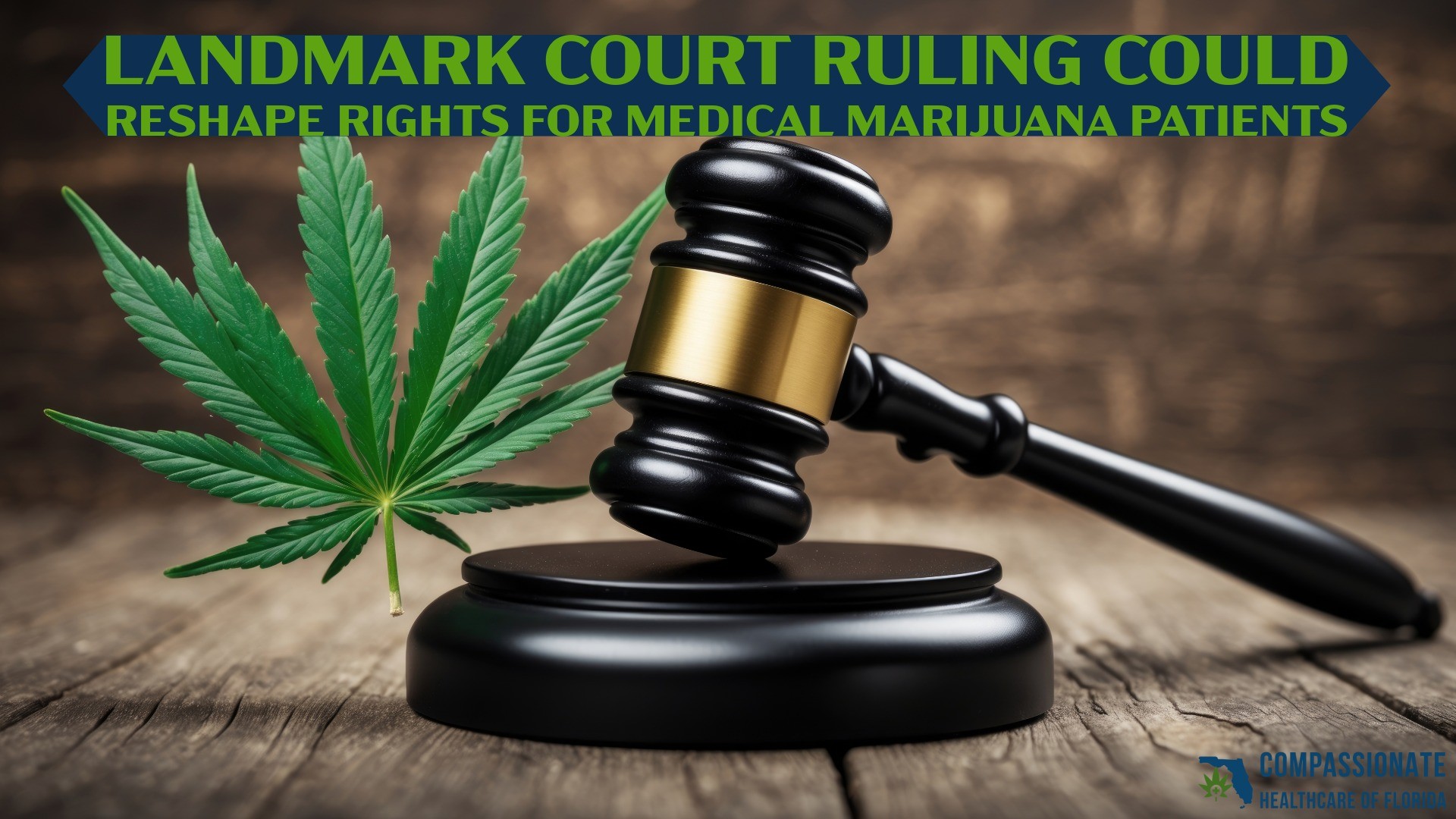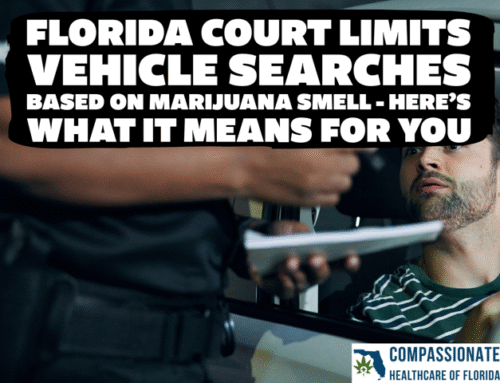 Landmark Court Ruling Could Reshape Rights for Medical Marijuana Patients
Landmark Court Ruling Could Reshape Rights for Medical Marijuana Patients
A recent decision from the 11th U.S. Circuit Court of Appeals has drawn national attention, as judges ruled that the federal government may not be able to prohibit medical marijuana patients from owning firearms. The case has major implications for the intersection of cannabis policy, constitutional rights, and patient access to medical care—particularly in states like Florida, where medical cannabis use is both legal for medical purposes and widespread.
The Case at a Glance
The appeal centered around whether the federal ban on firearm possession for “unlawful users of controlled substances” should extend to state-licensed medical marijuana patients. Current federal law classifies cannabis as a Schedule I substance, putting it in the same category as heroin. Under that designation, anyone who admits to marijuana use—medical or otherwise—is prohibited from owning or purchasing a firearm.
However, the 11th Circuit Court questioned whether this blanket restriction is constitutional under the Second Amendment, which guarantees the right to keep and bear arms. Drawing on the Supreme Court’s 2022 Bruen decision, which requires modern gun laws to be historically consistent, the appeals court found no precedent for stripping firearms rights from law-abiding citizens simply for using physician-recommended medical cannabis.
Why This Ruling Matters
Constitutional Rights
The court’s opinion emphasized that medical marijuana patients are often law-abiding citizens following state regulations. The decision suggests that removing Second Amendment rights based solely on cannabis use may not withstand constitutional scrutiny. If upheld, this could restore rights previously denied to thousands of patients.
National Ripple Effect
Although this decision came from the 11th Circuit, which covers Florida, Alabama, and Georgia, its reasoning could influence other jurisdictions. Similar challenges are already working their way through courts in states like Texas. The growing body of case law may push federal lawmakers to revisit outdated cannabis classifications.
Patient Impacts
For medical cannabis patients, the stakes are more than theoretical. Many rely on medical marijuana to manage chronic conditions such as pain, PTSD, or anxiety, but have faced a difficult choice: relief through cannabis, or retaining the ability to legally purchase a firearm. This ruling signals that patients may no longer need to make that compromise.
Medical Marijuana’s Evolving Role in Florida
Florida has one of the largest and fastest-growing medical marijuana programs in the country, with hundreds of thousands of active patients. The program allows qualified individuals to access cannabis for conditions ranging from cancer and epilepsy to Crohn’s disease and chronic pain. Licensed cannabis physicians can also recommend medical marijuana for 100’s or other condition of similar kind and class, such as anxiety, insomnia and spasticity.
Nikki Fried, Chair of the Florida Democratic Party and former Commissioner of Agriculture, described the ruling as a landmark decision. She had initiated the legal challenge during her tenure, arguing that medical marijuana patients should not have to choose between participation in Florida’s program and their Second Amendment rights. The State of Florida later withdrew from the case after her successor opted to end the state’s involvement.
“Medical marijuana patients should not have to choose between participating in Florida’s program and exercising their Second Amendment rights.” – Nikki Fried
As acceptance of cannabis as a legitimate treatment expands, patients increasingly see themselves not as “unlawful users” but as individuals following doctor-recommended care. This court decision validates that view by recognizing patients’ rights beyond just medical access.
The Tension Between State and Federal Law
One of the underlying issues in this case is the longstanding conflict between state-level legalization and federal prohibition. While Florida and more than 30 other states permit medical cannabis, the federal government continues to classify marijuana as having “no accepted medical use.” This contradiction has led to numerous complications for patients—ranging from employment protections to housing, and now, firearm ownership.
The appeals court’s decision does not eliminate the federal statute, but it does challenge its application, creating momentum for broader reform. If the issue reaches the Supreme Court, it could force a nationwide resolution.
Historical Context and Legal Reasoning
The court relied heavily on the Supreme Court’s Bruen framework, which requires gun restrictions to be justified by historical analogs. In this case, the government struggled to identify historical laws that directly compare to banning firearm ownership based on medical cannabis use. While there are historical precedents for disarming individuals deemed dangerous, the court found that medical marijuana patients as a group cannot reasonably be classified as such.
This reasoning underscores a key point: the law must distinguish between responsible, state-legal medical use and broader concerns about illegal drug activity.
What Comes Next
While the ruling is a significant milestone, the legal process is not finished. The Department of Justice may appeal the decision, and other circuits could rule differently, creating a split that the Supreme Court would need to resolve. In the meantime, the ruling provides encouragement for patients and advocates seeking to align cannabis laws with constitutional protections.
Broader Implications for Patients and Policy
- Healthcare Access: Patients may feel more secure choosing cannabis if they no longer face automatic loss of rights.
- Public Perception: Decisions like this continue to normalize medical marijuana use, reducing stigma.
- Federal Reform Pressure: As courts chip away at outdated cannabis policies, pressure grows for Congress to reschedule or decriminalize marijuana at the federal level.
Conclusion
The 11th Circuit’s decision represents a landmark moment for medical marijuana patients in Florida and beyond. By recognizing that cannabis use under a doctor’s care should not strip individuals of their Second Amendment rights, the ruling highlights the growing disconnect between federal law and modern medical practice.
As legal challenges continue, patients, providers, and policymakers will be watching closely. Whether this ruling marks the beginning of a nationwide shift or a stepping stone toward eventual Supreme Court review, it underscores one clear fact: medical marijuana is no longer a fringe issue—it is a mainstream healthcare option with constitutional implications.



